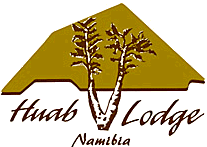A Home Where the Kudu Roam
When Jan van de Reep first scouted the wooded bushland where he would establish Huab Lodge , he recalls, "There was nothing left. Not one blade of grass, not a single animal track." Everything that was not choked by the parched land had been shot by the rapacious Afrikaner farmer who'd owned the land. "Anything he could kill, he killed. He poached rhino. He would wound elephants on purpose so they'd learn not to come here." Jan pauses. "The world became a better place when he died."
When Jan van de Reep first scouted the wooded bushland where he would establish Huab Lodge , he recalls, "There was nothing left. Not one blade of grass, not a single animal track." Everything that was not choked by the parched land had been shot by the rapacious Afrikaner farmer who'd owned the land. "Anything he could kill, he killed. He poached rhino. He would wound elephants on purpose so they'd learn not to come here." Jan pauses. "The world became a better place when he died."
Those words may sound harsh, and they're even more jolting coming from a man who so loves life. During a pelting afternoon shower, van de Reep jumps out of our vehicle, throws his arms wide, and tilts his head back to catch huge raindrops in his mouth. "This is liquid gold!" he hollers.
If water is currency, then van de Reep is a wealthy man. In a part of the country that had only eight inches of rain last year, Jan sits in a virtual oasis; his property holds three springs and a couple of man-made pools and is situated on a river that flooded 15 times in 1995. Under his stewardship, life has taken hold here once again. He has counted 177 species of birds (including several rarities) and increasing numbers of kudu, oryx, giraffe, ostrich, warthog, and leopard on his 50-square-mile nature reserve. When the first herd of elephants returned to drink at one of van de Reep's pools, he says, "I almost cried at the sight. The animals knew these were no longer killing fields."
A Dutch émigré who has lived in Namibia since 1968, van de Reep spent his early years here leading safaris in the vast Etosha National Park, where most of the country's wildlife is found. It was then that the onetime gardener cultivated his vision of a nature reserve and lodge, and began searching for a suitable location.
Because of its situation at the western border of the country's central plateau, this ground has witnessed many of the events that shaped Namibia's modern era. Just outside the soaring thatched roof of the main lodge sits the German Pool, a fishpond named for the settlers who constructed it a century ago. In the twenties this land was settled by northward-migrating Boers, and remained in South African control even after the United Nations declared that dominion illegal in 1968. The ensuing bush war for liberation was fought through the 1970's and 80's along the Angolan border, 150 miles to the north of Huab. Meanwhile, the previous owner of this farm hung on to play out his scorched-earth policy.
When van de Reep recounts the devastation he found here when he took over, people ask why he ever bought such a blasted place. "The situation was so shit it could only get better!" he replies. So it has—and not just for the animals. He employs some 35 of his neighbors from Damaraland and allows their livestock to graze on his property. "It's not enough to conserve nature," he says, "if you forget about the people."
The large guest quarters at Huab Lodge hold two huge double beds, a sitting area, a private porch, and his-and-her sinks. Van de Reep and his wife, Suzi, are earthy folk, and their place puts on no airs. "We don't go for excitement here," he says, sitting on a boulder while his rambunctious terrier chases lizards. "It's not the place to come for action—we don't intend to make it a zoo. But if you want to enjoy peace and quiet and look at birds and landscape and light and sit in a hot bath and go riding, this is the spot. We keep it as natural as possible, so it can return to what it used to be."


No comments:
Post a Comment